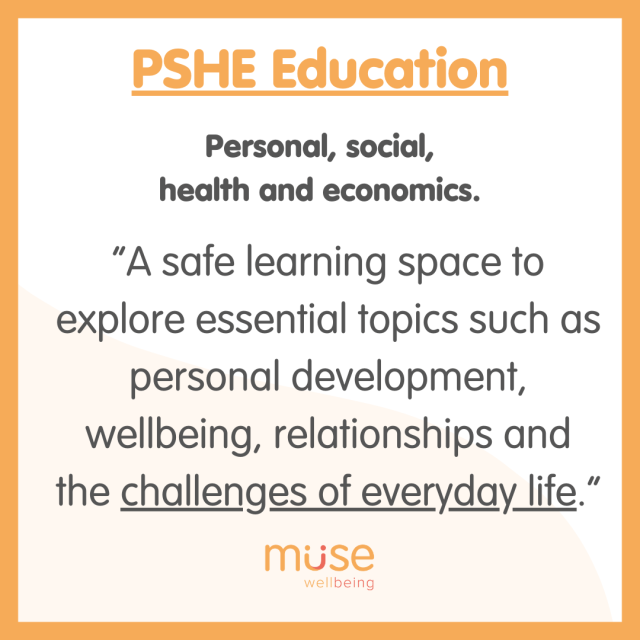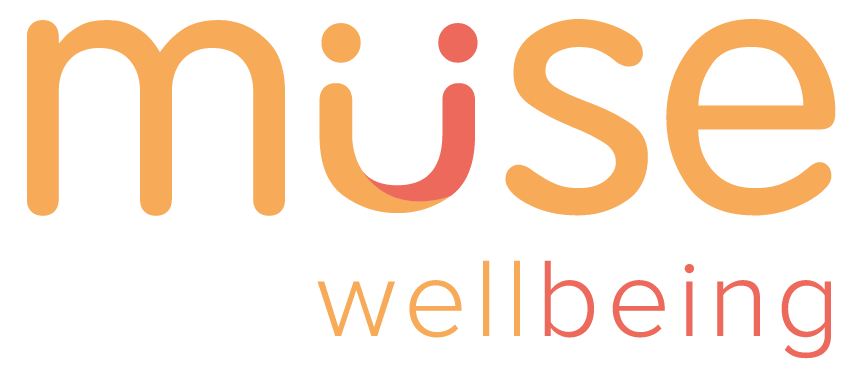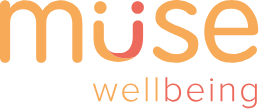What is a PSHE Lesson?

David is the Muse Wellbeing director and lead curriculum developer. His Main passions include education, surfing and travelling.

George is an international school teacher based in Asia. A passionate language learner and polyglot, he thrives in diverse classrooms.
What is a PSHE Lesson?
PSHE lessons offer students the chance to explore important topics (such as life skills, citizenship or wellbeing) in a supportive classroom environment. These lessons encourage student involvement by offering a safe learning space where young people can further their understanding within a range of topics. They empower students to speak up, respect one another and become good listeners. A good PSHE lesson should be fun and engaging while equipping students with the skills to stay happy, healthy and safe.
Why PSHE Matters
PSHE lessons are vital because they nurture well-rounded young people and provide them with the knowledge to stay safe and navigate the world around them. PSHE covers a wide range of topics, from preparing children for the changes they experience as they grow up and understanding their mental and physical health, to keeping them safe online and introducing them to financial education. Ofsted pays close attention to how PSHE is embedded in the school community because of its significant role in safeguarding. PSHE can be a focus during an Ofsted inspection, where inspectors look for the regular teaching of mandatory RSE topics as well as a whole-school approach to PSHE. Having a well-written PSHE policy can help with this.
PSHE and RSE: The Wider Curriculum
The difference between RSE and PSHE is that RSE is mandatory, while PSHE is not. However, many schools choose to teach a comprehensive PSHE curriculum that includes the mandatory RSE subjects.
All schools are required to teach relationships and health education in primary school. Sex education can also be included, provided it is age-appropriate. PSHE offers more flexibility, allowing teachers to tailor the curriculum to the needs of their pupils. As long as RSE guidelines are met, schools have the freedom to decide what is covered in PSHE. A PSHE scheme of work provider (such as Muse Wellbeing) can help schools meet and exceed the 2020 DfE guidelines in their PSHE lessons.
What is Taught in PSHE?
PSHE stands for personal, social, health and economic education, meaning a wide range of topics can be covered in a PSHE lesson.
- Term 1: Health and Wellbeing1:1 – Healthy Minds and Healthy Bodies
1:2 – Growth and Change - Term 2: Understanding Relationships2:1 – Positive Relationship
2:2 – Respecting Others and Ourselves - Term 3: The World Around Us3:1 – Thinking Locally and Globally
3:2 – Economic Wellbeing and Reflection
Muse provides a comprehensive PSHE curriculum for primary school children that covers topics such as wellbeing, RSE, PSHE, digital citizenship and global understanding. PSHE lessons cover a broad range of topics, including mental and physical health, friendships and relationships, online safety, global issues, financial education and preparing for the transition to secondary school.
Five Strategies for Effective PSHE Lessons
- Set Clear Ground Rules: Create a safe, respectful environment by setting expectations and rules before beginning discussions. Some PSHE topics may be awkward or uncomfortable for children to discuss, and certain discussions might raise safeguarding issues that need to be addressed. It’s important for children to know that the classroom is a safe space for asking questions during a PSHE lesson. Teachers should promote an understanding atmosphere where children learn to be kind, respectful and attentive to one another.
- Encourage Open Dialogue and Collaboration: Create an environment where students feel comfortable sharing their thoughts and experiences. Some children may find it difficult to speak up, so incorporating a question box into PSHE lessons can be helpful. This allows children to ask questions or express opinions anonymously, easing the pressure of speaking in front of the whole class.
Some PSHE lessons can be challenging for children to understand, especially those with SEND, so differentiating work to meet their needs is invaluable. Additionally, some children may find certain topics amusing, particularly in KS2 PSHE lessons where they become more aware of physical and emotional changes. It’s often best to allow children to express this, then guide them to discuss the topic more sensibly once they’ve had time to process the learning.
- Interactive Activities: Use role-playing, group discussions and games to encourage active participation. The best way to learn about real-life situations isn’t just by looking at a whiteboard or computer screen but by engaging in activities that allow children to think about their actions and the potential consequences.
PSHE lessons should be fun and engaging for both teachers and students to get the most out of them. That’s why Muse Wellbeing has developed a complete PSHE scheme of work to ease the planning load for teachers, enabling them to deliver more enjoyable lessons. All materials in the Muse curriculum are created by teachers and educational creatives to support the lessons and ensure all children can access the learning.
- Reflect and Recap: Summarise key points at the end of each lesson to reinforce learning. Ofsted measures the success of PSHE lessons by their impact on the whole school, rather than individual pupil attainment, falling under ‘personal development’ in an Ofsted inspection. This falls under ‘personal development’ in an Ofsted inspection. There’s little benefit in rushing from one lesson to the next if students haven’t fully grasped what’s being taught. PSHE lessons aren’t about covering as many topics as possible throughout the year; they’re about equipping students with the skills to lead healthier, happier lives.
Taking time at the end of each lesson to summarize the learning with input from pupils, and then recapping previous learning at the start of new lessons, gives students an opportunity to take responsibility for their learning and build on the skills provided by PSHE.
- Use a PSHE Scheme of Work: Not only do PSHE scheme of work providers like Muse Wellbeing help to alleviate the planning pressure, but also provide teachers with everything they need to deliver a comprehensive PSHE curriculum. With a Muse Wellbeing subscription, schools gain access to 216 PSHE lessons for Years 1-6, yearly overviews, lesson plans, slides, resources, differentiation for both SEND learners and high-achievers, and Muse Wellbeing videos to support the lessons.
Preparing Students Through PSHE
PSHE lessons give every student an equal opportunity to learn the skills needed to be prepared for life in the modern world. No other school subject has such a significant impact on the safety, aspirations, attainment, and goals of young people as PSHE.
Children who have better physical and mental health and understand what affects their wellbeing are more likely to achieve academically and, as a result, experience greater success in life after education.
PSHE lessons prepare students for changes in themselves, their friendships, and the world around them, giving them insight into what lies ahead. They provide practical skills to navigate these changes as smoothly as possible and help students understand that everyone goes through these experiences differently.
Muse Wellbeing is dedicated to nurturing the growth of resilient and caring students in all schools.
Muse Wellbeing
Support
Subscribe for RSHE & Wellbeing Updates & Learning Resources

Copyright © 2025 Muse | All Rights Reserved.
Would you like to logout of Muse Wellbeing?


